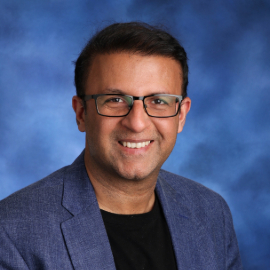Annual Carol Buck Lecture and Graduate Scholarship
"Mitigating Health Inequalities: Is It Time for a New Lens?"

2024 Carol Buck Lecturer: Shehzad Ali, MBBS, MPH, MSC, PHD
Canada Research Chair in Public Health Economics
Associate Chair (Research), Associate Professor
Department of Epidemiology and Biostatistics,
Schulich School of Medicine & Dentistry, Western University
Date: Friday, December 13, 2024
Time: 1:30 - 2:30 p.m. EST
Location: PHFM 3015 and Zoom (request link by email epibio@uwo.ca )
Short Bio:
Dr. Shehzad Ali holds a Canada Research Chair in Public Health Economics, and serves as the Associate Chair (Research) at the Department of Epidemiology and Biostatistics, Schulich School of Medicine and Dentistry. He is also a Visiting Associate Professor of Health Economics and Health Services Research at University of York (UK), and Honorary Fellow at Macquarie University (Australia), and Affiliate/Adjunct Scientist at the Centre for Addictions and Mental Health (CAMH) and Bruyère Research Institute. Dr. Ali leads the Economics and Equity sub-group of the WHO Collaborating Centre for Knowledge Translation and HTA in Health Equity. He holds a PhD in Health Economics (University of York), MSc in Medical Statistics (University of Leicester), Masters in Public Health (University of Leeds) and Bachelors in Medicine and Surgery (Dow University of Health Sciences).
With a career research income of >$25M, as principal or co-investigator, Dr. Ali has held grants from major funding bodies in Canada (CIHR), US (NIH), the UK (NIHR) and Australia (NHMRC). He has authored >100 papers in peer-reviewed journals. These studies are published in leading journals in the fields of Health Services Research, Health Economics, Public Health and Medicine, including the Lancet, JAMA Psychiatry, JAMA Open, Health Economics, Medical Decision Making and Social Science and Medicine. In 2022/3, Dr. Ali’s research was recognized by CIHR with the prestigious Robyn Tamblyn Health Services and Policy Research Innovator Award. He is an Associate Editor of the British Journal of Psychiatry, and Health and Quality of Life Outcomes.
Dr. Shehzad Ali is a scholar of one of the most pressing public policy challenges of our time: how to efficiently and fairly allocate the limited health system resources to improve population health. He studies this at the intersection of economics, equity and health services research. His novel work is paving the way to incorporate equity into the economic evaluation framework. His current CIHR-funded study (2023-2027), in collaboration with key Canadian decision-makers, including the Canadian Agency for Drugs and Technologies in Health (CADTH), aims to re-engineer health policy decision-making for equitable allocation of resources – this presents a fundamental shift from the traditional approach to economic evaluation.
Abstract:
Over decades, health systems researchers have called for an end to the ‘averagarian’ approach, pushing health inequities research to the forefront. Yet, despite the proliferation of buzzwords, progress remains elusive. I argue that a fundamental re-evaluation of our approach is needed. This entails moving beyond descriptive and associational analyses—many of which lack immediate policy relevance—to adopting an interventional mindset that directly addresses inequities. Furthermore, I contend that a narrow, siloed perspective—rooted in overly clinical or academic frameworks—limits our ability to apply ‘systems thinking’ to tackle the broader societal and upstream drivers of inequities. Similarly, over-reliance on data-driven and statistical convenience constrains our understanding of actionable pathways. I will conclude by proposing solutions to drive meaningful change.
Dr. Carol Buck
 Dr. Carol Buck, a dedicated member of the Department of Epidemiology and Biostatistics from 1952 to 2004, left an indelible mark on Schulich Medicine & Dentistry as its first female chair, serving from 1967 to 1977. Her passion for advancing human health made her an international leader in epidemiology, and her impact extended to both students and colleagues.
Dr. Carol Buck, a dedicated member of the Department of Epidemiology and Biostatistics from 1952 to 2004, left an indelible mark on Schulich Medicine & Dentistry as its first female chair, serving from 1967 to 1977. Her passion for advancing human health made her an international leader in epidemiology, and her impact extended to both students and colleagues.
The establishment of the Carol Buck Lecture and Graduate Scholarship in Epidemiology stands as a tribute to Dr. Buck's enduring legacy. Throughout her career, she demonstrated an unwavering commitment to improving human health by employing rigorous epidemiological methods to identify and address the root causes of ill-health. Renowned for her remarkable clarity of thought and communication, Dr. Carol Buck continues to be remembered and respected by her colleagues and former students.









